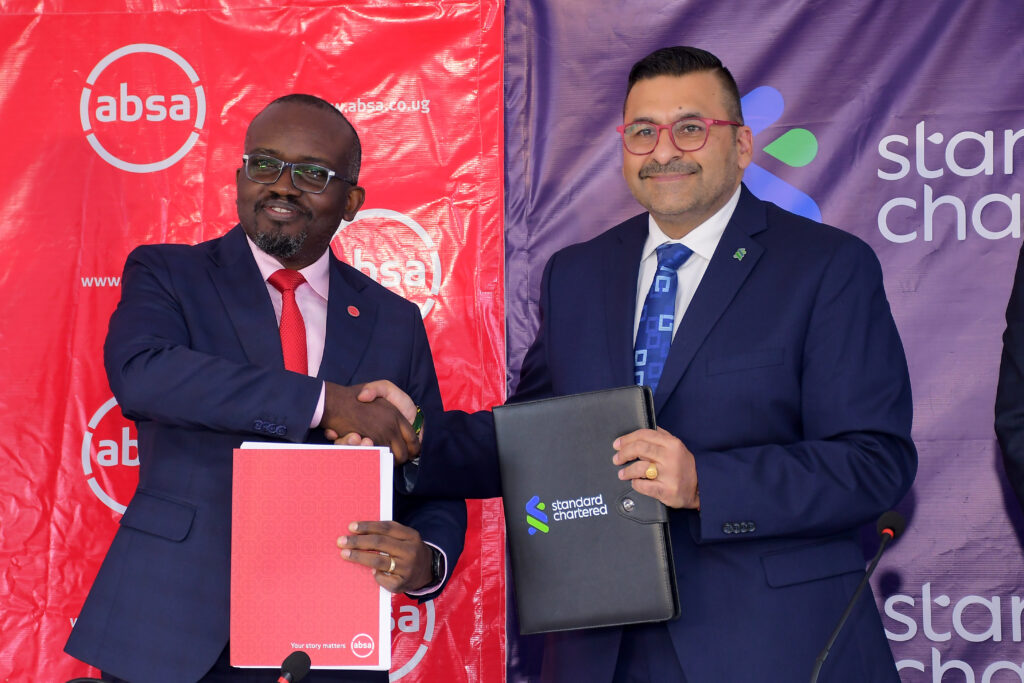Absa, in collaboration with the Agricultural Development Agency (AGDA), recently hosted an agricultural stakeholder roundtable dialogue aimed at exploring sustainable solutions for financial inclusion in the sector.
The event brought together key stakeholders and finance decision-makers. According to Leona Archary, CEO of AGDA, the goal is to move from diagnosing challenges to co-designing practical and scalable solutions. “While the sector has significant potential for growth, the financing landscape is often fragmented. Many programmes operate in silos, and there is limited coordination between policy objectives and commercial financing realities.
“We need to align with public and private funding streams, and develop mechanisms that make agricultural finance more inclusive, innovative, and responsive to the realities of farmers on the ground,” said Archary.
Absa’s commitment to agricultural growth
Sanah Gumede, Managing Executive for Strategy and Customer Value Management at Absa Business Banking, emphasised the bank’s strong commitment to the growth and success of South Africa’s agricultural sector.
“Agriculture remains a critical part of our economy, contributing to food security, job creation, and development,” she said.
Gumede further highlighted that while the sector is rich with initiatives and innovation, new agripreneurs often struggle to access growth finance when they are ready to scale. “This is not due to a lack of potential, but reflects the need for better alignment, financial readiness, and long-term support,” she explained.
She called for stronger collaboration across the agricultural value chain, noting that no single institution can address these challenges alone.
“The task demands cooperation between banks, development finance institutions, government, private sector, large agribusinesses, and smallholder farmers. Building trust between policymakers and practitioners is essential,” Gumede said.
Financing gaps in developing agriculture
Dr Langelihle Simela, Business Development Manager at Absa Business Banking, highlighted persistent gaps in financing South Africa’s developing agricultural sector, particularly around governance, financial readiness, and structured funding pathways for emerging farmers.
She explained that many farmers face challenges due to limited financial records and compliance issues, which make accessing credit difficult. “Without appropriate financial statements or a track record of their activities, it’s challenging to present a credible case for financing,” Simela noted, emphasising that governance challenges further compound the issue.
Simela further outlined the typical financing journey for new-entrant agri-entrepreneurs, noting that most start with self-funding before progressing to external support. Early-stage businesses often rely on personal savings, angel investors, or pension funds, with venture capital becoming relevant as they grow, and bank financing available once profitable.
She highlighted that many developing farmers struggle to achieve financial stability, with performance often fluctuating and comprehensive support required to reach their potential.
To address this, Simela called for a structured growth pathway in agricultural financing, beginning with grants to establish proper systems, progressing to development fund venture capital, and later commercial lending supported by guarantee funds. Formalising agri-businesses, she stressed, is key to accessing higher-level funding.
“A client is ready to scale up when their business is formalised and can sustain debt while meeting all bank requirements,” she said, adding that while commercial funders must adapt to serve the sector, true transformation begins with building credit-ready clients.
Meanwhile, Masiphula Mbongwa, Policy Advisor and former Director-General of Agriculture, highlighted the potential role of institutional investors as a new source of funding for agriculture. He emphasised the need for a structured deployment approach to support this framework, while continuing to leverage both public and private-sector funding
The need for a supportive ecosystem
Elder Mtshiza, Programme Manager at the Department of Agriculture, shared an in-depth reflection on the country’s blended finance model, acknowledging both challenges and progress. Mtshiza explained that while implementation has faced funding constraints, the model has nonetheless proven effective.
“Have we made progress? Yes, we have, though it has been limited by available funding. We’ve reached agreements with various banks but couldn’t finalise them due to insufficient funds, especially given the country’s current financial constraints. Still, everyone recognises that blended finance works.”
She emphasised the need for a supportive ecosystem to empower farmers beyond just financing. “Farmers often lack all the knowledge and expertise they need. Development partners are essential to provide education, mentorship, coaching, farm assessments, planning, execution, record-keeping, market intelligence, and support with negotiations,” she explained.
Althea Discala, CEO of Discala Holdings, echoed Mtshiza, highlighting that the lack of an enabling ecosystem, limited collaboration, and insufficient backing from banks for emerging agripreneurs as key barriers to growth. Discala noted that many new entrants face structural disadvantages that limit their access to credit.
“Greenfield farms or start-up operations have to wait years for profitability,” she said, adding that such enterprises “require working capital and support in these years in order to scale.”
Calling for a more inclusive approach to financing, she said, “There needs to be less stringent requirements from the banks. How do we collaborate? So, you need to have an ecosystem, and each part of the value chain needs to be funded separately.”
The dialogue concluded with four thematic breakaway sessions exploring key aspects of inclusive agricultural finance. From closing funding gaps and financing climate resilience to supporting enterprise growth and enabling policies. Each group developed practical recommendations to inform the Agriculture and Agro-Processing Master Plan (AAMP) funding framework.
.png)
.png)
.png)
.png)
.png)
.png)
.png)

.png)
.png)










